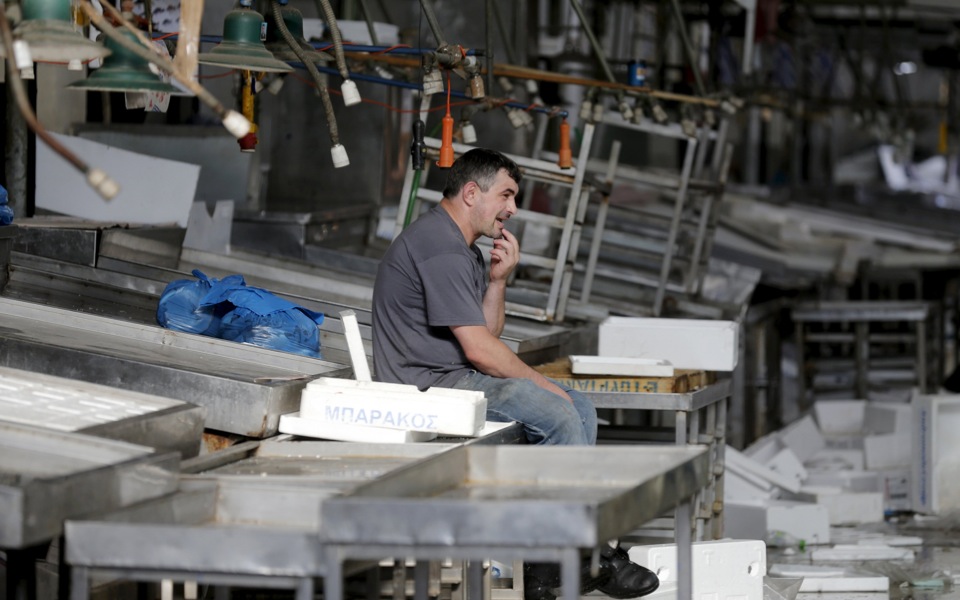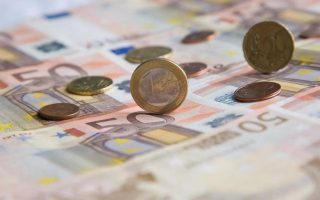Bailout success finely balanced

The chances of the new bailout agreement between Greece and the European Institutions succeeding are split. Although the fiscal targets have been lowered to reflect the new economic reality, the effort will still be significant after several years of recession, barring the 2014 interlude. Fiscal and reform fatigue coupled with domestic politics increase implementation risks. The fact that some in Germany favor the so-called temporary Grexit scheme means the new agreement will face greater hurdles along the way. For the new bailout accord to succeed, the Greek economy has to grow but this is not the main scenario in the economic program this year and next.
Greece missed a great opportunity to put behind it the nightmare of economic policy programs by successfully concluding the last review of the second bailout program at the end of last year or the first quarter of 2015. Therefore, it will pay the consequences of the new, third program, but we will have to wait and see whether it will also reap the benefits. According to the European Commission and the European Central Bank’s recent statement on Greece, “implementation of the reform agenda will provide the basis for a sustainable recovery.” The policies will be built around four pillars: restoring fiscal sustainability, safeguarding financial stability, unlocking the economy’s growth potential and modernizing the state and public administration. Undoubtedly, they are all important policies and interlinked to some degree.
Under other circumstances, we would put the modernization of the state administration as the first priority. However, given the situation and the risks associated with program implementation, we have to put economic growth and investments first. This is the easiest way to achieve fiscal sustainability and fight reform fatigue. If not, fiscal consolidation will become more painful and reforms more difficult to apply. The auditors will continue to find out and be frustrated, for example by the fact that non-prescription drugs cannot be sold anywhere excpet pharmacies, as well as that other special interest groups, such as uniformed officers, retain their pension exceptions.
But economic growth and investments cannot be ordered by anyone. They are the byproduct of numerous decisions, measures and expectations of a number of agents. Politics play a role too, since they can upset even the best calculations. One has to ask some of the international investors who paid more than 8 billion euros in 2014 to buy shares and bonds of Greek banks, betting on an unfolding economic recovery scenario or those who bought more than 5 billion euros in Greek government bonds. They are all recording huge losses today because they failed to take local politics into account.
The political landscape has to be stable and clear for anyone to invest in Greece. This should be the case more so now, following the debt restructuring in 2012 and the big losses suffered by those who bought the Greek turnaround story last year. It is hard to argue this is the case at this point with the rift in the ruling SYRIZA party and the bailout agreement passing with the votes of opposition political parties. Whether this means a national unity government or snap elections remains to be seen.
The return of the Greek economy to growth is paramount for the new program to succeed. It is encouraging that despite high uncertainty and less credit availability, the Greek economy grew 0.8 percent quarter-on-quarter in real terms from April through June based on preliminary data by the Hellenic Statistical Authority (ELSTAT). The number, which is often subject to material revisions later on, may reflect purchases by consumers as concerns about a possible Grexit started mounting during this period. It also depicts the impact of less austerity.
But austerity is going to come back as tax hikes go into effect, pensions are reduced via higher health contributions and signs become clearer that employment in the private sector is shrinking again after many months of positive growth. On the other hand, the tourism industry seems to be holding its ground despite a sharp drop in domestic travel and holidays according to experts. Assuming the actual data in coming months confirm this view, this will show how resilient the tourism industry is, helping mitigate the recessionary effects of capital controls and other restrictive measures.
But this is one of the few positive signs in a rather negative background captured in the assumptions of the new bailout program. The baseline scenario predicts an economic contraction of 2.3 percent this year followed by a smaller drop in 2016. This makes the 2009-16 period the worst ever for the Greek economy since World War II and even before that. With economic output shrinking by more than 25 percent in such a lengthy period of time and unemployment exceeding 25 percent of the labor force, this episode can be justifiably called depression.
In this regard, it is amazing how stoically the Greek people have endured all this hardship although they are not all in the same boat, as we have pointed out in the past. There are areas in the country – i.e. tourism destinations, some farming areas – which they have not felt the crisis even though their residents complain about it. The economic crisis has hit mainly the major urban centers which are called upon to bear the brunt of all sort of taxes and unemployment.
It is therefore important that all parties intensify efforts to return the Greek economy to growth as soon as possible and politics should have a positive contribution to this end. If that does not happen, the new bailout program will fail.





